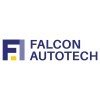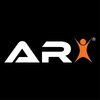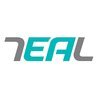


i
Siemens
Work with us
![]()
Filter interviews by
Siemens Interview Questions and Answers
360 Interview questions
Safety measures for working at heights and managing electrical hazards are crucial for preventing accidents.
Conduct a risk assessment before starting work at heights to identify potential hazards.
Use appropriate personal protective equipment (PPE) such as harnesses and helmets.
Ensure ladders and scaffolding are stable and inspected regularly.
Implement fall protection systems like guardrails or safety nets.
For elec...
Designing a current transformer involves selecting materials, dimensions, and configurations for accurate current measurement.
Core Material: Choosing high permeability materials like silicon steel to minimize losses.
Winding Design: Determining the number of turns for primary and secondary windings to achieve desired transformation ratio.
Insulation: Ensuring adequate insulation to handle high voltages and prevent b...
I would prioritize, streamline communication, and leverage tools to efficiently manage bulk inquiries while ensuring quality responses.
Prioritize inquiries based on urgency and potential value, addressing high-priority clients first.
Utilize CRM software to track and manage inquiries, ensuring no request is overlooked.
Create templated responses for common inquiries to save time while maintaining personalization.
Del...
Debits and credits are fundamental accounting concepts used to record financial transactions in double-entry bookkeeping.
Double-Entry System: Every transaction affects at least two accounts, with debits and credits balancing each other.
Debit: An entry on the left side of an account, increasing assets or expenses, e.g., purchasing inventory increases the inventory account.
Credit: An entry on the right side of an ac...
Implemented various cost-saving initiatives that improved efficiency and reduced expenses across departments.
Negotiated better terms with suppliers, resulting in a 15% reduction in procurement costs.
Streamlined inventory management, reducing excess stock and saving $50,000 annually.
Introduced energy-efficient practices in the office, leading to a 20% decrease in utility bills.
Implemented a digital invoicing system...
Budget vs Actual comparison analyzes financial performance by comparing planned budgets to actual expenditures and revenues.
Helps identify variances between expected and actual financial performance.
Example: If a budget for marketing is $10,000 but actual spending is $12,000, there's a $2,000 overage.
Used for performance evaluation and strategic decision-making.
Example: A company may adjust future budgets based on...
As a finance manager, my critical contribution areas include strategic planning, financial analysis, and risk management.
Strategic Planning: Developing long-term financial strategies that align with business goals, such as forecasting revenue growth.
Financial Analysis: Conducting in-depth analysis of financial statements to identify trends and areas for improvement, like cost reduction.
Budget Management: Overseein...
Variance analysis is a financial tool used to assess the difference between planned and actual performance.
Identifies discrepancies between budgeted and actual figures, e.g., actual sales vs. forecasted sales.
Helps in understanding the reasons behind variances, such as increased costs or lower sales.
Can be applied to various areas like revenue, expenses, and profit margins.
Example: If a company budgeted $100,000 f...
Absorption rate measures how quickly a property sells in a specific market, calculated by dividing sales by inventory.
Absorption Rate = (Number of Sales in a Period) / (Total Inventory Available)
For example, if 10 homes sold in a month and there are 50 homes available, the absorption rate is 10/50 = 0.2 or 20%.
A higher absorption rate indicates a seller's market, while a lower rate suggests a buyer's market.
Real e...
When a product fails to meet acceptance criteria but is highly demanded, prioritizing quality and stakeholder communication is crucial.
Assess Impact: Evaluate how the quality issues affect the product's functionality and user experience. For example, if a medical device has a minor software bug, it may still be usable but could pose risks.
Communicate with Stakeholders: Inform stakeholders about the quality concern...
Siemens Interview Experiences
453 interviews found
(5 Questions)
- Q1. What is circuit breakers
- Ans.
Circuit breakers are electrical switches designed to protect electrical circuits from damage caused by overload or short circuit.
Circuit breakers automatically stop the flow of electricity when a fault is detected.
They can be reset manually after tripping.
Common types include thermal-magnetic, magnetic, and thermal circuit breakers.
Examples include miniature circuit breakers (MCBs) and molded case circuit breakers (MCC...
- Q2. What is difference contractor or relay
- Ans.
Contractor is a device used to make or break an electrical circuit, while relay is an electromagnetic switch that opens or closes circuits.
Contractor is typically used for high power applications, while relay is used for low power applications.
Contractor is usually larger in size and can handle higher currents, while relay is smaller and handles lower currents.
Contractors are commonly used in industrial settings for co...
- Q3. What is difference neutral or earthing
- Ans.
Neutral is a current-carrying conductor that completes the circuit, while earthing is a safety measure to prevent electric shock.
Neutral wire carries current back to the source in a circuit
Earthing provides a path for fault currents to flow safely to the ground
Neutral wire is typically connected to the center tap of a transformer
Earthing is done by connecting metal parts of electrical equipment to the earth
- Q4. What is star or delta
- Ans.
Star and delta are two types of connections used in electrical circuits.
Star connection is a type of electrical connection where all the components are connected at a common point, forming a star shape.
Delta connection is a type of electrical connection where the components are connected in a triangular shape, resembling the Greek letter delta.
Star connection is commonly used in three-phase AC circuits, while delta con...
- Q5. What is use contractor
- Ans.
A contractor is a person or company hired to perform work on a specific project or job.
Contractors are hired to complete tasks that the hiring company may not have the expertise or resources to do themselves.
Contractors can be hired for various projects such as construction, electrical work, plumbing, etc.
Contractors are typically paid for their services based on a contract or agreement outlining the scope of work, tim...
I appeared for an interview in May 2025, where I was asked the following questions.
- Q1. Utility related
- Q2. Pervious company related
(2 Questions)
- Q1. Are you aware about process industry ?
- Ans.
Yes, process industry refers to industries that produce goods through a series of steps or processes.
Process industry involves manufacturing products through a series of steps or processes.
Examples include chemical plants, oil refineries, food processing plants, and pharmaceutical companies.
Efficiency and optimization are key factors in process industry to ensure quality and cost-effectiveness.
- Q2. Tell me about design principles
- Ans.
Design principles are fundamental concepts used to guide the software design process.
Design principles help ensure that software is scalable, maintainable, and efficient.
Examples of design principles include SOLID principles, DRY (Don't Repeat Yourself), KISS (Keep It Simple, Stupid), and YAGNI (You Aren't Gonna Need It).
(2 Questions)
- Q1. What is difference between Dependency Inversion & Dependency Injection ?
- Ans.
Dependency Inversion is a design principle where high-level modules do not depend on low-level modules, but both depend on abstractions. Dependency Injection is a design pattern where the objects are passed their dependencies rather than creating them internally.
Dependency Inversion: High-level modules depend on abstractions, not on low-level modules. Promotes decoupling and flexibility.
Dependency Injection: Objects ar...
- Q2. How do you push the data from server to client
- Ans.
Data can be pushed from server to client using technologies like WebSockets, Server-Sent Events, or HTTP long polling.
Use WebSockets for real-time bidirectional communication between server and client.
Server-Sent Events allow server to push data to client over a single, long-lived connection.
HTTP long polling involves the client making repeated HTTP requests to the server, which holds the response until new data is ava...
I applied via Naukri.com and was interviewed in Nov 2024. There were 2 interview rounds.
(3 Questions)
- Q1. Whast is Lan ?
- Ans.
LAN stands for Local Area Network. It is a network that connects computers and devices in a limited area such as a home, office, or school.
LAN is used to share resources like printers, files, and internet connections within a limited area.
LAN typically operates within a single building or a group of nearby buildings.
Ethernet cables, Wi-Fi, and switches are commonly used in LAN setups.
Examples of LAN include home networ...
- Q2. OSI layers and some questions related to HSRP
- Q3. Wifi devices , routing and switching questions
(1 Question)
- Q1. Simple intro questions
Interview Preparation Tips
I appeared for an interview before Jun 2024, where I was asked the following questions.
- Q1. I have interviewed in Networking testing role , so OSI MODEL / Computer working basics
- Q2. How to debug an Ping not successfull issue from an remote location DHCP process/ARP Process / TCP-IP /UDP / Port numbers of network protocols
Interview Preparation Tips
Logistics and Supply Chain Management Manager Interview Questions & Answers
posted on 24 Jan 2025
(2 Questions)
- Q1. About profile previous job experience, roles & responsibilities handled.
- Q2. Achievements, Projects.
Interview Preparation Tips
Thank You,
Best Regards,
Two coding questions
(2 Questions)
- Q1. Basics concepts of c# digging to very depth
- Q2. Design patterns used
- Ans.
Various design patterns like Singleton, Factory, and Observer are used in my projects.
Singleton pattern ensures a class has only one instance and provides a global point of access.
Factory pattern creates objects without specifying the exact class of object that will be created.
Observer pattern defines a one-to-many dependency between objects so that when one object changes state, all its dependents are notified and upd...
(1 Question)
- Q1. Exception handling
(2 Questions)
- Q1. Exception handling
- Q2. Multi-threading
(2 Questions)
- Q1. Reason for change
- Q2. Motivation for change
- Ans.
I am motivated by the opportunity to learn new technologies and solve complex problems.
Opportunity to work on cutting-edge technologies
Challenge of solving complex problems
Desire for continuous learning and growth
Interview Preparation Tips
Skills evaluated in this interview
I applied via Campus Placement and was interviewed in Nov 2024. There were 3 interview rounds.
Basic aptitude and common CS fundamentals questions.
Share the current technology related topic.
(2 Questions)
- Q1. Question on OOPS
- Q2. Coding questions
Interview Preparation Tips
I applied via Company Website and was interviewed in Nov 2024. There was 1 interview round.
Core java program where mainly asked ,45 mints interview duration was
Experience group (3-6 years )
1> Star pattern program pyramid Like / output : 1 12 123 1234
2> String str [] =" djkfsnfnsm,f";
find the /print the value of char from string which is 4th and 5th from right hand side (value of s and n )?
3>String x= "A:B:C:D";
Remove the semicolon from the String and print the value of x=[1]=A ,x[2]=B
4> To find the Number Even or ODD program
5> Find the x path of Jio Application logo and some more Logos from pages
6>Rest assured Question from Different Status codes
Interview Preparation Tips
I applied via Naukri.com and was interviewed in Nov 2024. There was 1 interview round.
(1 Question)
- Q1. How to you handle the conflicts and maintain KPIs for critical vendors? what are the structures you use?
What people are saying about Siemens






Siemens Interview FAQs
Some of the top questions asked at the Siemens interview -
The duration of Siemens interview process can vary, but typically it takes about less than 2 weeks to complete.
Tell us how to improve this page.
Siemens Interviews By Designations
- Siemens Software Developer Interview Questions
- Siemens Software Engineer Interview Questions
- Siemens Senior Software Engineer Interview Questions
- Siemens Senior Executive Interview Questions
- Siemens Electrical Engineer Interview Questions
- Siemens Graduate Engineer Trainee (Get) Interview Questions
- Siemens System Engineer Interview Questions
- Siemens Intern Interview Questions
- Show more
Interview Questions for Popular Designations
- Software Developer Interview Questions
- Software Engineer Interview Questions
- Senior Software Engineer Interview Questions
- Senior Executive Interview Questions
- Electrical Engineer Interview Questions
- Graduate Engineer Trainee (Get) Interview Questions
- Intern Interview Questions
- System Engineer Interview Questions
- Show more
Overall Interview Experience Rating
based on 398 interview experiences
Difficulty level
Duration
Explore Interview Questions and Answers for Top Skills at Siemens
Interview Questions from Similar Companies
Siemens Reviews and Ratings
based on 5.1k reviews
Rating in categories
|
Software Developer
1.8k
salaries
| ₹3.8 L/yr - ₹26.9 L/yr |
|
Senior Software Engineer
1.8k
salaries
| ₹9.4 L/yr - ₹35 L/yr |
|
Software Engineer
1.5k
salaries
| ₹6.4 L/yr - ₹21.5 L/yr |
|
Manager
585
salaries
| ₹13.9 L/yr - ₹25 L/yr |
|
Senior Process Associate
455
salaries
| ₹2.2 L/yr - ₹7 L/yr |

Schneider Electric

Siemens Energy

Johnson Controls

Honeywell Automation
- Home >
- Interviews >
- Siemens Interview Questions












